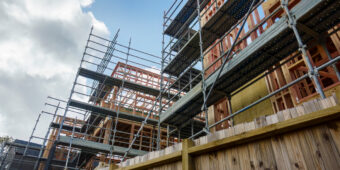MANDATORY INSURANCE LOOMING?
17 Jul 2019, Industry News, Insurance, Learn, News, Prove Your Know How

Yet more obligations on builders? Read more on MBIE’s review of insurance requirements
MBIE is currently reviewing aspects of New Zealand’s building system as part of the largest proposed building reform since 2004. Part of this review includes how risk is allocated across the various players in the sector.
One recommendation would: “Require that a guarantee and insurance product is put in place for all residential new builds and significant alterations. Homeowners would be able to actively opt out of having a guarantee and insurance product.”
If implemented, only builders who can offer this “guarantee and insurance product” would be able to build residential homes or do major alterations. Where this line is drawn hasn’t been decided yet, but the three suggestions are:
- Alterations over $30;
- Alterations over $100k; or
- Alterations involving structural or weathertightness work.
In other words, builders who can’t access this insurance would only be able to work on smaller residential projects or subcontract to another builder that can.
What could this mean for you?
As it currently stands, there are four ways you could comply with this new rule:
- Join the Registered Master Builders Association.
- Join the New Zealand Certified Builders Association.
- Become accredited with Builtin Insurance.
- Register and be approved by Stamford Insurance.
Each option has its pros and cons, but all have membership or assessment criteria you must meet before accessing their guarantee or insurance product.
According to MBIE’s discussion document “builders who don’t offer a guarantee and insurance product would face financial penalties. Related obligations would be included in the licensed building practitioner scheme requirements.”
MBIE estimates that taking out such a policy adds around 1% to the cost of each build. It is suggested that this be passed onto the homeowner, who is the beneficiary of the policy. They believe that this extra cost is more than made up for by the benefits. These are primarily:
- Insurers’ compliance requirements would increase quality and financial solvency standards across the industry.
- Losses suffered by BCAs and individual homeowners from building failures would be reduced, as these would be covered by insurance.
BCAs would be responsible for monitoring compliance with this new system and registering policies on the LIM.
Why is MBIE recommending this change?
Their main aim is to ensure homeowners are better protected if something goes wrong with their building work. MBIE’s research showed that homeowners have a low understanding of the risks they face.
This may mean that they fail to take adequate steps to manage their risks. They estimate that fewer than half of all new builds and major renovations have any form of independent guarantee or insurance in place.
The two primary risks faced by homeowners are:
- That their building work isn’t completed due to the builder going out of business.
- That their finished house or renovation work will have defects.
Currently, both the Consumer Guarantees Act and Building Act provide significant protections for homeowners, including implied warranties that make the builder responsible for defective building work for up to ten years. However, statistics show that many building companies simply don’t survive to be around if/ when a problem arises that far down the track. And these laws don’t provide any protection if the building company goes bust during the build either. This has led to the recommendation that a guarantee or insurance product become a requirement, with homeowners able to opt out if they wish.
This system is common overseas, with most Australian states requiring some form of warranty insurance. In the UK it is compulsory by default, as banks won’t lend for new residential builds without one.
At two-year transition period
If this proposal gets the green light, changes would need to be made to the Building Act and to regulation. There would be a two-year transition period to allow builders to secure a suitable guarantee or insurance product.
It should be noted that similar proposals have been floated to and by the government of the day for ten years. There is a political consideration to any change that would add to the cost of building houses, so whether or not these recommendations ever make it into law is a big question.
In a nutshell
MBIE’s main aim is to ensure homeowners are protected if something happens during their project, or if defects arise later. They are concerned that the current approach of mandatory disclosure requirements is not increasing the uptake of this type of insurance. MBIE’s proposal is to legally require all builders that want to do new residential construction and major alterations to provide a guarantee or insurance product (homeowners will be able to opt out). Builders who can’t meet insurers’ standards will not be able to do this type of work directly for the public. This is only a proposal for now and no decisions have been made.
Builtin New Zealand is a specialist in insurance & guarantees for builders & tradespeople. For more information visit www.builtin.co.nz, email Ben Rickard at ben@builtin.co.nz or call him on 0800 BUILTIN.
Register to earn LBP Points Sign in
2 Comments
Leave a Reply
You must be logged in to post a comment.




Standards
done